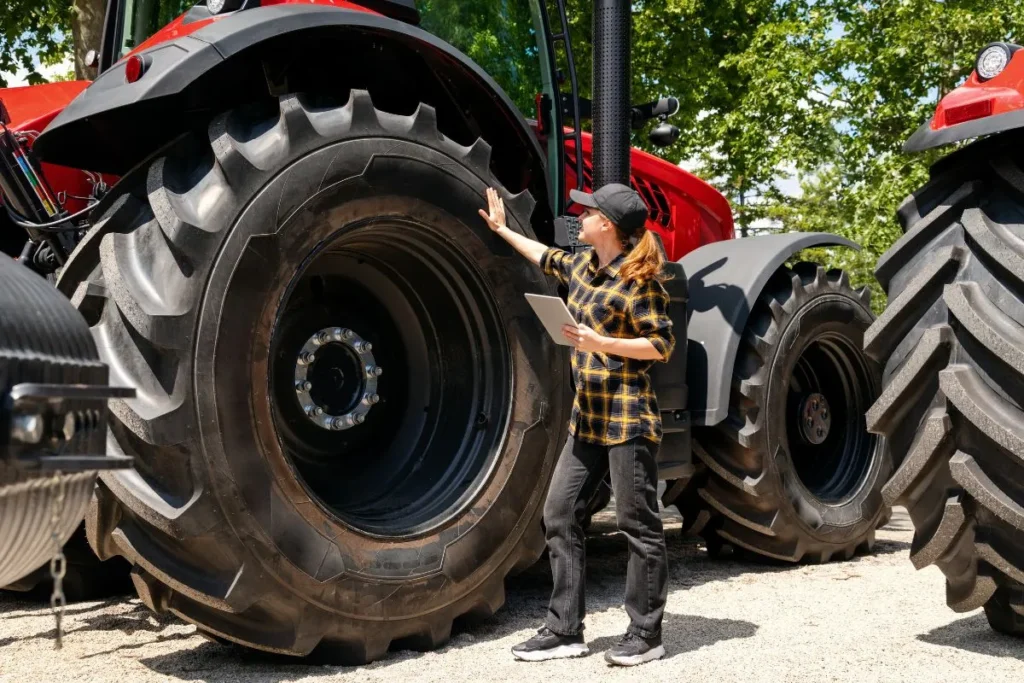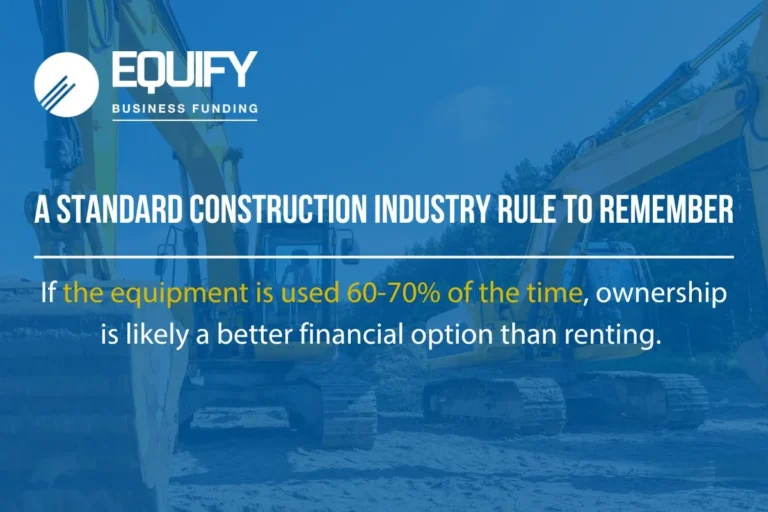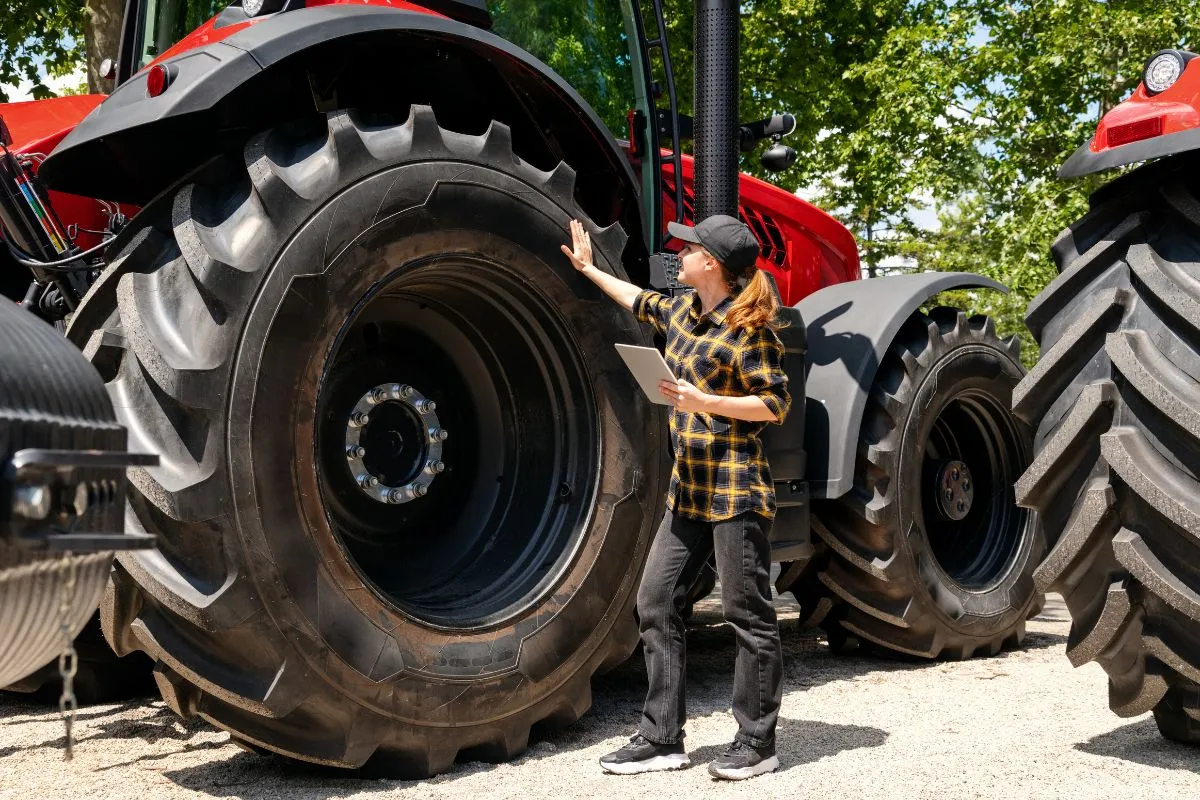
For many construction business owners, renting vs. owning heavy equipment is a balancing act. Renting equipment can be a great way to get quick access to less specialized machines without the total commitment of ownership. But when does converting that rental into an ownership investment make more sense?
Before you decide, consider how a rental conversion can impact your cash flow and productivity, and use this helpful guide to determine if it’s the right fit for your business.
Table of Contents
1. Rental Conversions Are Gaining Popularity
The number of construction business owners taking advantage of the benefits of converting rentals into owned assets is growing. Industry shifts driving this trend, including rising rental rates and access to customized financing options, can make ownership a practical alternative to renting.
Some benefits of rental conversions include:
- Lower total cost: Ownership can reduce costs over time compared to long-term rental payments.
- Contribute to equity: You build your asset value when you covert your rental. You can also gain opportunities for depreciation write-offs.
- Crew familiarity: Your team is already trained on the machine, helping to reduce time often associated with transitions and learning curves.
- Operational flexibility: Owning your equipment gives you greater control over equipment availability. You have the equipment you need on hand to tackle any project that comes your way.
2. Financial Implications
When considering a rental conversion, evaluating the up-front costs and the long-term financial impact is essential. Making the shift from renting to ownership requires a substantial initial investment, but financing options can help ease this transition and provide cash flow stability.
Financial questions to consider include:
- What is the break-even point for ownership vs. continued rental?
- How will a rental conversion impact cash flow?
- Are there potential tax benefits?
Many lenders offer financing designed for rental conversions so you can turn your current rental payments into equity toward ownership.
3. Maintenance Cost
Switching from renting to owning equipment comes with some financial changes, especially when it comes to maintenance. When renting, the rental company often handles repairs and upkeep. If you decide to own the equipment, those maintenance responsibilities and costs land on you, affecting your day-to-day cash flow and long-term budget.
- Budget for upkeep: Owning equipment means planning for ongoing maintenance costs, which vary depending on the equipment’s type and how often you use it. These expenses can add up quickly for high-use or specialized equipment.
- Dealing with downtime: When you own, you’re more exposed to the risk of downtime if something breaks down. Having a backup plan or extra equipment available can provide a sense of security, as downtime can mess with project timelines and lead to lost revenue. It’s a cost that isn’t just about repairs but also lost productivity.
- Look at warranties and service options: Some financing packages offer extended warranties or service plans that can help lower your maintenance costs. These can be worth considering to keep your repair costs manageable in those early years of ownership.
- Operator training: Make sure your crew knows how to handle and care for the equipment properly. Proper training helps them spot issues early, saving on repair costs and keeping equipment in good shape longer.
Don’t overlook the age and wear history of the equipment. Older or heavily used equipment often needs more repairs, which can impact your bottom line. Consider these maintenance costs carefully to help you budget more realistically and be better prepared for these ongoing costs.
4. Equipment Utilization
When considering converting to ownership, the significant consideration is how frequently the equipment will be used. High-utilization equipment, like excavators or loaders, often justify ownership costs, while rarely used or specialized equipment might not.
Ask yourself:
- What percentage of your projects require this equipment?
- Are there seasonal fluctuations in your need for this type of equipment?
- Would owning this equipment create new projects and business opportunities?

5. Financing Flexibility: Options for Rental Conversions
Many lenders offer flexible financing for rental conversions, allowing you to build equity while maintaining cash flow. Financing options vary, with some offering a portion of your rental payments to be applied toward the final purchase, effectively creating a “lease-to-own” arrangement.
Popular RPO agreements include:
- Flexible payment terms: Monthly, seasonal, or customized plans that align with your cash flow.
- Prepayment options: For businesses that experience fluctuating cash flows, flexible prepayment can help accelerate ownership without penalty.
- Deferred payment plans: Deferring payments allows companies to start the conversion without a large initial outlay.
Making the Smart Choice for Your Business
Converting a rental to ownership isn’t a one-size-fits-all decision. It depends on factors like equipment utilization, budget, tax considerations, and your business’s long-term goals. Taking into account these considerations can help ensure you make the most financially sound choice for your business.
Quiz: Is a Rental Conversion Right for Your Business?
Use this quick quiz to see if converting your rental equipment into ownership is the best move for your business. Your answers will give you a start when considering leasing vs. purchasing the equipment you need, but remember, it’s best to discuss your options with an experienced heavy equipment financing rep.
1. How frequently do you use the equipment?
(A) On nearly every project (high usage)
(B) On occasional projects (moderate usage)
(C) Rarely – we only rent it as needed (low usage)
2. Are you looking for tax benefits through equipment ownership?
(A) Yes – our accountant has recommended more fixed assets
(B) Maybe – I’d like to know more about it
(C) No – I’m focused on maintaining cash flow
3. Are you comfortable managing the maintenance and repair responsibilities?
(A) Yes – we can handle repairs
(B) Somewhat – but I’d need a warranty or service plan
(C) No – I prefer to leave maintenance to someone else
4. Does owning this equipment help us expand our service offerings?
(A) Yes – it will open us up to new project opportunities
(B) Possibly – we might take on more diverse projects
(C) No – we don’t foresee taking on new project types
5. What’s your preferred financing option?
(A) Financing with flexible payments
(B) A deferred or seasonal payment plan
(C) No financing – I prefer renting to keep things simple
If you answered mostly A’s, a rental conversion could be an ideal move for you, especially if you have high equipment utilization and want the benefits of ownership.
If you answered primarily B’s, you may benefit from exploring specific financing or warranty options that align with your business’s unique cash flow needs and project demands.
If you answered mostly C’s, continuing to rent may be a better option unless equipment utilization changes.
The local reps at Equify Financial understand all forms of heavy equipment structured finance and can help you decide which options are best for your business. I take the time to get to know your business and match you with the best financing options (whether renting or purchasing) to get you the heavy equipment you need.
Start a conversation today.

